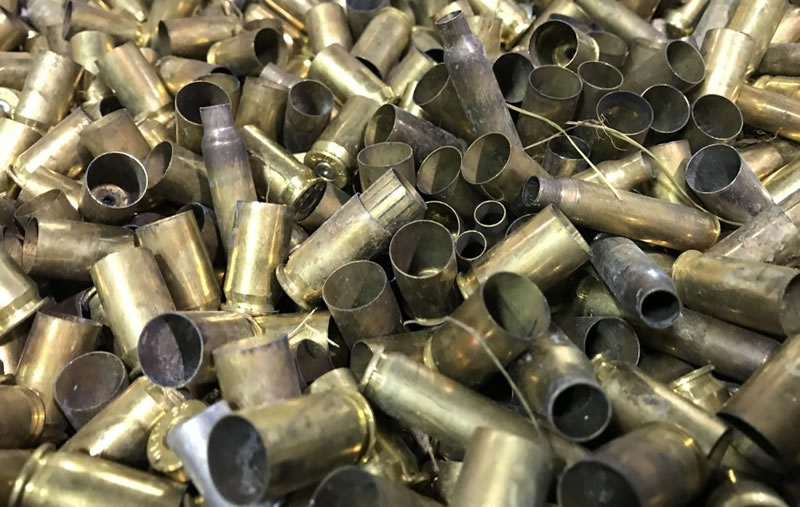Can you Recycle Bullet Casings

In a world increasingly focused on sustainability and environmental consciousness, every aspect of our daily lives is under scrutiny for its impact on the planet. This includes even the seemingly mundane items we might not think twice about – like bullet casings. The question arises: Can you recycle bullet casings, and if so, what implications does this have for both the environment and the shooting community?
The Basics of Bullet Casings
Bullet casings, also known as shell casings or cartridge cases, are the metal containers that hold the components of a bullet, including the primer, gunpowder, and the projectile itself. Once a bullet is fired, the casing is ejected from the firearm, leaving only the spent casing behind. Traditionally made from brass, although steel and aluminum casings are also common, these casings have long been viewed as a disposable byproduct of the shooting process.
The Environmental Impact
The disposal of spent bullet casings has raised environmental concerns, particularly given the increasing popularity of shooting sports and recreational shooting activities. Brass, a common material for bullet casings, is an alloy composed primarily of copper and zinc. The extraction and processing of these metals can have significant environmental consequences, including habitat destruction, water pollution, and energy consumption.
Furthermore, when left in the environment, spent casings can contribute to litter and metal pollution. Over time, the casings may corrode and release heavy metals into the soil, potentially harming plants and wildlife. In waterways, the metal content can pose risks to aquatic ecosystems.
Recycling Bullet Casings: Is It Possible?
The good news is that bullet casings are indeed recyclable. The materials used in their production, especially brass, have intrinsic recycling value. Recycling bullet casings can help reduce the demand for new raw materials and alleviate some of the environmental impacts associated with metal extraction and processing.
Recycling Process
The recycling process for bullet casings is relatively straightforward. It involves collecting spent casings, separating them from other materials like lead bullets, and then melting down the metal to create new brass. The molten brass can then be molded into new casings or other brass products.
Bullet casings that have been fired may contain residues of lead, a toxic metal. Properly handling and recycling spent casings require the removal of lead contaminants. Specialized recycling facilities equipped to handle firearms-related materials can address this issue, ensuring that both the metal and the environment are protected.
Community Initiatives
In recent years, there has been a growing awareness within the shooting community about the importance of responsible ammunition disposal. Some shooting ranges and organizations have implemented recycling programs to collect and recycle spent casings. These initiatives aim not only to reduce the environmental impact of shooting activities but also to promote a culture of sustainability within the firearms community.
The Benefits of Recycling Bullet Casings
- Environmental Conservation: Recycling bullet casings helps conserve natural resources by reducing the need for new metal extraction and processing. This, in turn, mitigates the environmental impact associated with these activities.
- Energy Savings: The energy required to extract and process metals from raw materials is considerable. By recycling bullet casings, energy consumption is significantly reduced, contributing to overall energy savings and a smaller carbon footprint.
- Economic Value: Recycling brass casings has economic benefits. The recycled metal can be sold to manufacturers, contributing to a circular economy where materials are reused, reducing the dependence on virgin resources.
- Community Engagement: Recycling initiatives within the shooting community foster a sense of responsibility and environmental awareness. This engagement can lead to positive changes in behavior and attitudes towards sustainability.
Challenges and Considerations
While recycling bullet casings presents a viable solution to mitigate environmental impact, there are challenges and considerations that need to be addressed:
- Lead Contamination: The presence of lead in spent casings poses a challenge to recycling. Proper handling and processing are essential to ensure that lead is removed, preventing contamination and environmental harm.
- Collection Infrastructure: Establishing efficient collection systems for spent casings can be challenging, especially in regions where shooting activities are widespread. Implementing convenient drop-off points or collaborating with shooting ranges can help overcome this hurdle.
- Awareness and Education: Many shooters may not be aware of the recyclability of bullet casings or the environmental consequences of improper disposal. Education campaigns are crucial to raising awareness and encouraging responsible practices within the shooting community.
Conclusion
The question of whether you can recycle bullet casings has a clear answer: yes. Recycling bullet casings is not only possible but also a meaningful step toward sustainable ammunition practices. The environmental benefits, economic value, and positive impact on community engagement make recycling a compelling option for shooters and the broader public alike. As the world navigates towards a more sustainable future, even the smallest components of our daily activities, including bullet casings, play a role in shaping a greener, more responsible world.






